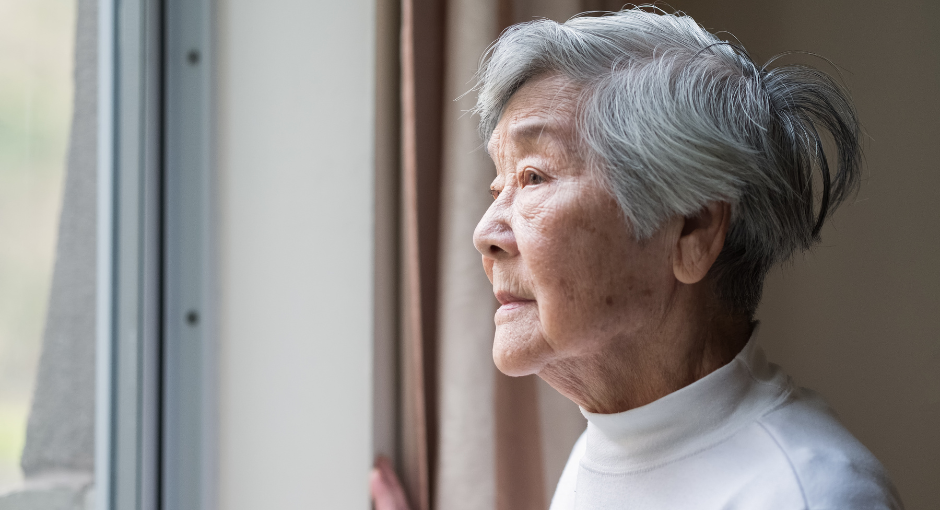Caring for the Mind: 12 Parkinson’s Mental Wellness Resources

At times, living with Parkinson’s disease (PD) can feel overwhelming. Managing symptoms, navigating physical and mental changes and making lifestyle adjustments can all take an emotional toll. As you find your path forward, it’s essential to acknowledge and take steps to care for your mental health.
Up to half of all people with Parkinson's will experience depression at some point, while 40% will experience anxiety. Nearly half of people with PD can also experience apathy, a loss of interest in life. These changes can be related to PD, due to a loss of dopamine and other chemical messengers the body makes to keep the brain healthy.
Whether you live with PD or you are a care partner to someone who does, it can be challenging to know where to begin. Explore our top resources that address mental wellness and PD:
1. Create space for all your emotions, even those of grief and loss.
Grief is a natural part of the Parkinson’s journey, especially following a diagnosis. Holding onto grief impacts your mind and body. Read 6 Questions for Exploring Your Parkinson’s-Related Grief to find healthy ways to honor and process feelings of loss.
2. Explore our e-book Mood: A Mind Guide to Parkinson's Disease.
Parkinson’s-related mood changes are commonly undertreated. There are screening tools and therapies available. Learn what to watch for and how to discuss treatment options with your doctor.
3. Cultivate a state of calm with Mindfulness Mondays, a series of guided relaxations.
Stress can worsen PD symptoms. Mindfulness, focusing on one thing at a time and blocking out distractions, promotes resiliency and reduces stress. Read Top Takeaways About Complementary Therapies and PD to explore more mind-body wellness practices.
4. Listen to our podcast How to Talk About Impulse Control Disorders.
Up to 14% of people receiving dopamine-replacement therapy can develop compulsive behaviors known as impulse control disorders. It is believed people perform these harmful behaviors (such as hypersexuality, hoarding or compulsive gambling) to relieve anxiety and tension.
5. Learn how Parkinson’s disease cognition – the mental skills we use to focus, solve problems, plan, follow instructions and more.
Thinking changes can influence mental health. Addressing Thinking Changes in Parkinson's identifies coping strategies and therapies for cognitive change.
6. Break a sweat with our free, on-demand Fitness Friday workouts.
Exercise is medicine. Regular exercise can ease depression, anxiety and other non-movement symptoms of PD, as well as improve mobility and flexibility. Aim for at least 2.5 hours a week.
7. Build your mental health team.
Mental health support helps you prioritize your emotional well-being and work through your feelings. To know what to look for in a mental health counselor, read 7 Helpful Tips for Finding Your Ideal Mental Health Counselor.
8. Improve shut-eye with Sleep: A Mind Guide to Parkinson's Disease.
Restorative sleep helps repair the brain and body and enhances mental wellness – critical for people with Parkinson’s and care partners. Expert Tips on How to Get Good Sleep with Parkinson's also offers strategies to build a healthy sleep routine.
9. Read How to Harness Food as Medicine for Parkinson’s.
Gut and brain health are intertwined. A nutrient-rich diet – including colorful fruits and vegetables, beans, whole grains, poultry, nuts, seeds, fatty fish, olive oil and other healthy fats – can offer neuroprotective benefits and boost the number of good bacteria in the body.
10. Get social and connect with your PD community online or in person.
Loneliness can affect physical and mental health. Find your nearest Moving Day, A Walk for Parkinson’s to meet others living with PD or access wellness classes and other resources near you through the Parkinson's Foundation local Chapter network.
11. Don’t fear hard conversations. You are not alone.
People with Parkinson’s are at an increased risk of suicide. If you are struggling with thoughts of despair, opening up to someone you trust is the first step toward getting the help you need. How to Openly Discuss Suicide and Parkinson’s can help you talk about difficult feelings. The National Suicide Prevention Lifeline is available 24 hours a day at 1-800-273-8255.
12. Get inspired. Learn how others are navigating life with Parkinson’s.
My PD Story is a place for where people share how they are raising awareness of PD and overcoming its challenges. Learn what keeps others hopeful and consider sharing your own story.
For more mental health resources:
-
Watch our PD Health @ Home Mental Wellness Series to explore how others with Parkinson’s navigate mental health.
-
Learn 15 Actionable Ways to Practice Self-Care, a guide for care partners to relieve stress and boost mental health.
-
Read our blog to discover How to Advocate for Your Mental Health with Parkinson’s
-
Explore the collection of Emotional & Mental Health resources on the Parkinson’s Foundation website.
We’re here for you. Contact our Helpline more information on mental health, referrals to professionals and resources in your area. Call 1-800-4PD-INFO (1-800-473-4636) or email Helpline@Parkinson.org.
Related Materials
Pain in Parkinson's Disease
Occupational Therapy and PD
Nutrition and PD
Related Blog Posts

Shaping the Future of Parkinson’s Policy: Meet Our Chief Strategy and Policy Officer

10 Tips for Playing Pickleball to Stay Active with Parkinson’s
